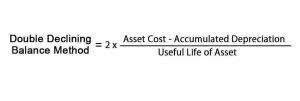
Under IFRS, any changes to lease terms or conditions require a remeasurement of the lease liability and a corresponding adjustment to the right-of-use asset. GAAP also mandates remeasurement but includes specific guidance on how to handle different types of modifications, such as those that grant additional rights to the lessee Online Accounting or extend the lease term. On a balance sheet, assets must always equal equity plus liabilities. Let’s start by noting that under the accrual concept, income is recognized when earned regardless of when it is collected. Not sure where to start or which accounting service fits your needs?

Accounting for Rent Expenses in Financial Statements
This process continues until the entire amount is accounted for as earned revenue. Some unearned income, like capital gains, may even qualify for a 0% tax rate for lower-income taxpayers. Many other types of unearned income enjoy a deferred tax payment status, meaning you get to pay taxes on them at a later date.
Journal Entries
Later on, when the business has actually provided the goods or services, an adjusting journal entry will be made. The balance of the unearned revenue account will then be reduced with a debit entry and then the balance in the revenue account will be increased with a credit entry. Accounting reporting principles state that unearned revenue is a liability for a company that has received payment (thus creating a liability) but which has not yet completed work or delivered goods.

How does unearned revenue impact financial statements and balance sheets?
In order to calculate the unearned revenue that will be earned for a month, the $12,000 unearned revenue is divided by the 6 months, which will give us $2,000. This $2,000 is now what is recognized as the monthly earned revenue over time. Advanced payments made by the lessee should not be part of Rent Income. Rather, advances should be recorded as liabilities (under Unearned Rent Income or Advances from Lessee).
- You need to make precise journal entries to keep your financial statements right.
- Following the law is a big deal for companies with unearned revenue.
- And since assets need to equal liabilities in the same period, you’ll also need to debit your cash account by $2,000 under current assets.
- As obligations are fulfilled, the liability decreases, and earned revenue is recognized.
- Deferred revenue, also known as “unearned revenue”, is a key concept in accounting and financial management, particularly for businesses that receive payments before delivering goods or services.
- When the business provides the good or service, the unearned revenue account is decreased with a debit and the revenue account is increased with a credit.
- The ROU asset includes the lease liability plus any prepaid lease payments and initial direct costs.
Unearned rent revenue is a temporary account as it closes at the end of each what is unearned rent revenue accounting period, with balances transferred to the income statement. Unearned rent revenue is considered a liability because the company owes the service (rented space) to the customer who paid in advance. Are you curious about the world of accounting and wondering about specific account classifications? In fact, in a recent survey conducted by the AICPA, nearly 60% of small business owners admit to a lack of accounting knowledge. A common question that often arises is ‘Unearned rent revenue is what type of account‘? To answer this and help you navigate the complex world of accounting with confidence, we’ve put together a comprehensive resource on unearned rent revenue.

If you are renting something for business, when you can deduct these expenses depends on your accounting method. Businesses that involve deferred revenue include subscription-based services, where customers pay in advance for a product or service. This can include software companies, streaming services, or even online courses. Deferred revenue is a common phenomenon in many businesses, and it’s essential to understand how it works. Unearned revenue is a liability for a company that has received payment but hasn’t yet completed work or delivered goods. However, as you fulfill a contract, you transfer part of the unearned revenue account into the revenue account, which then appears on the income statement.
To account for this unearned rent, the landlord records a debit to the cash account and an offsetting credit to the unearned rent account2. In the month of cash receipt, the transaction does not appear on the landlord’s income statement at all, but rather in the balance sheet (as a https://vadodara.tie.org/what-does-a-l-mean-business-2/ cash asset and an unearned income liability)2. For landlords and property management companies, these payments are not immediately recognized as income. Instead, they’re recorded as a liability on the balance sheet under “unearned rent,” reflecting the obligation to provide occupancy over the agreed period. Under the liability method, you initially enter unearned revenue in your books as a cash account debit and an unearned revenue account credit.
Where Does Rent Revenue Go on an Income Statement? Understanding Rental Income Statements
For practical purposes, when asking is unearned revenue the same as deferred revenue, the answer is generally yes. Both terms describe the same fundamental concept—income received but not yet earned. “Unearned revenue” is more commonly used in everyday business contexts, especially in service-based industries. In contrast, “deferred revenue” tends to appear more in formal financial statements and regulatory filings. That said, some types of unearned income, such as qualified dividends and long-term capital gains, receive favorable tax treatment.

Financial Analysis

The stability provided by long-term leases with unearned rent can be a significant factor in the financial health of a rental business. The specificity of tenant agreements can greatly affect the management of unearned rent. For instance, a lease that includes a clause for rent adjustments based on certain conditions, such as inflation or property tax increases, may introduce complexity into the accounting process.

Comentarios recientes